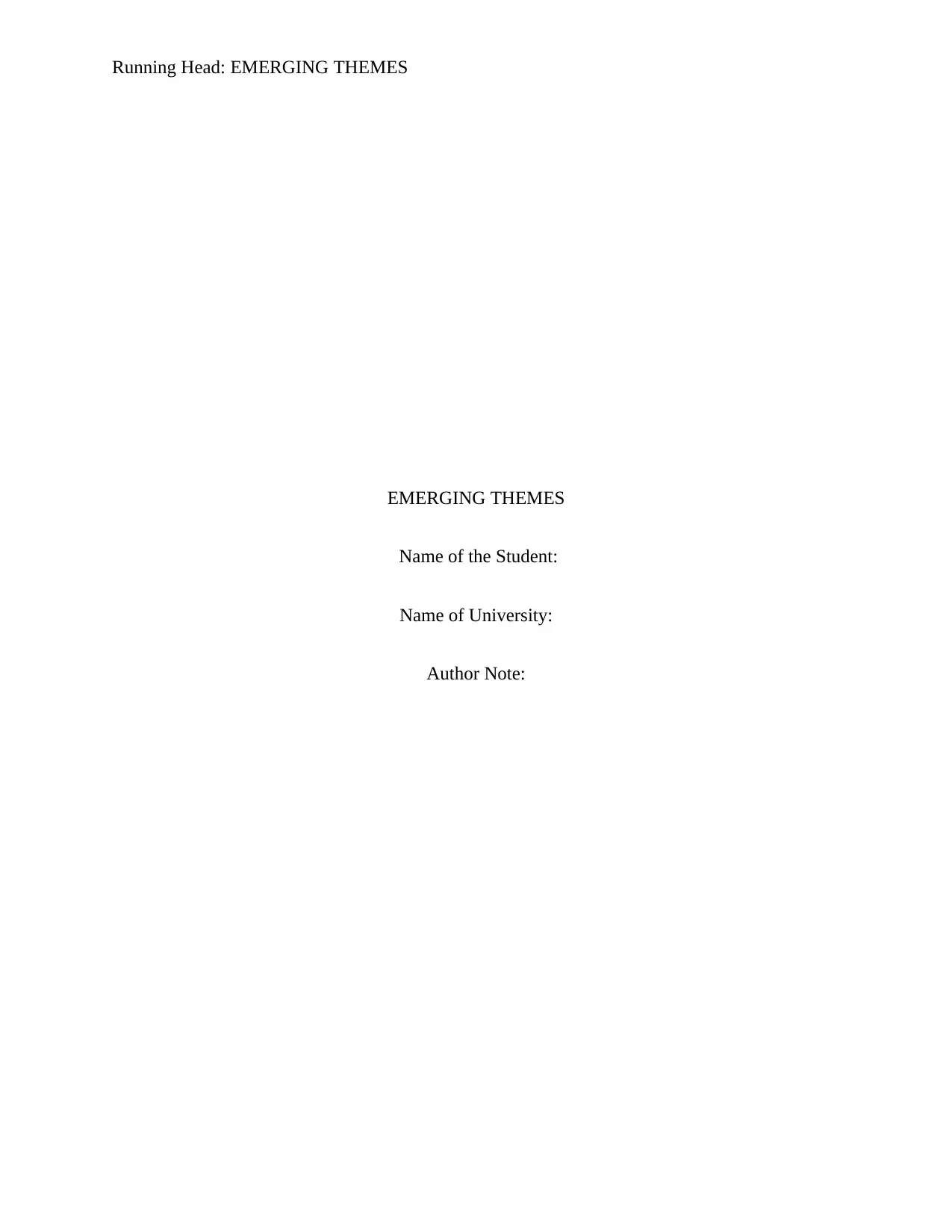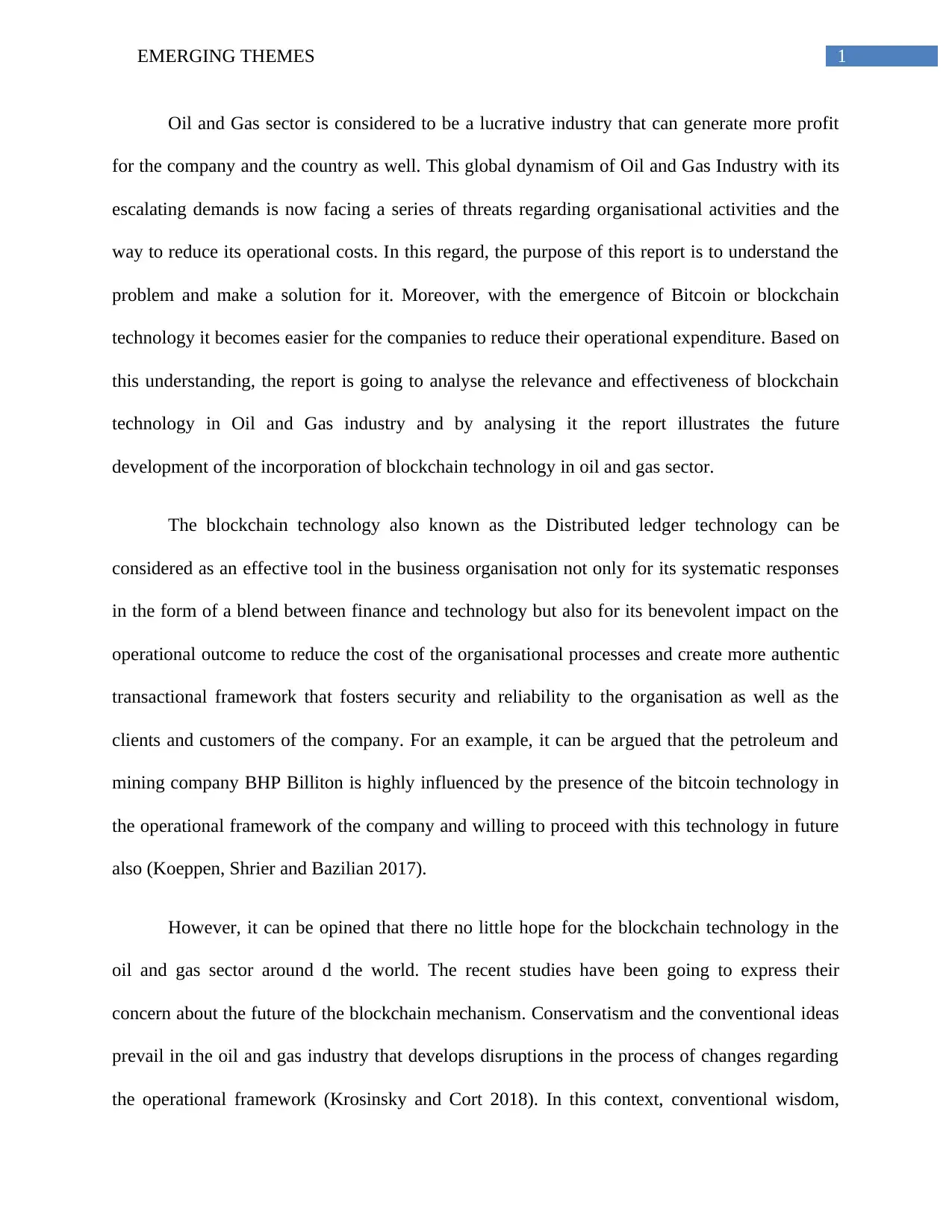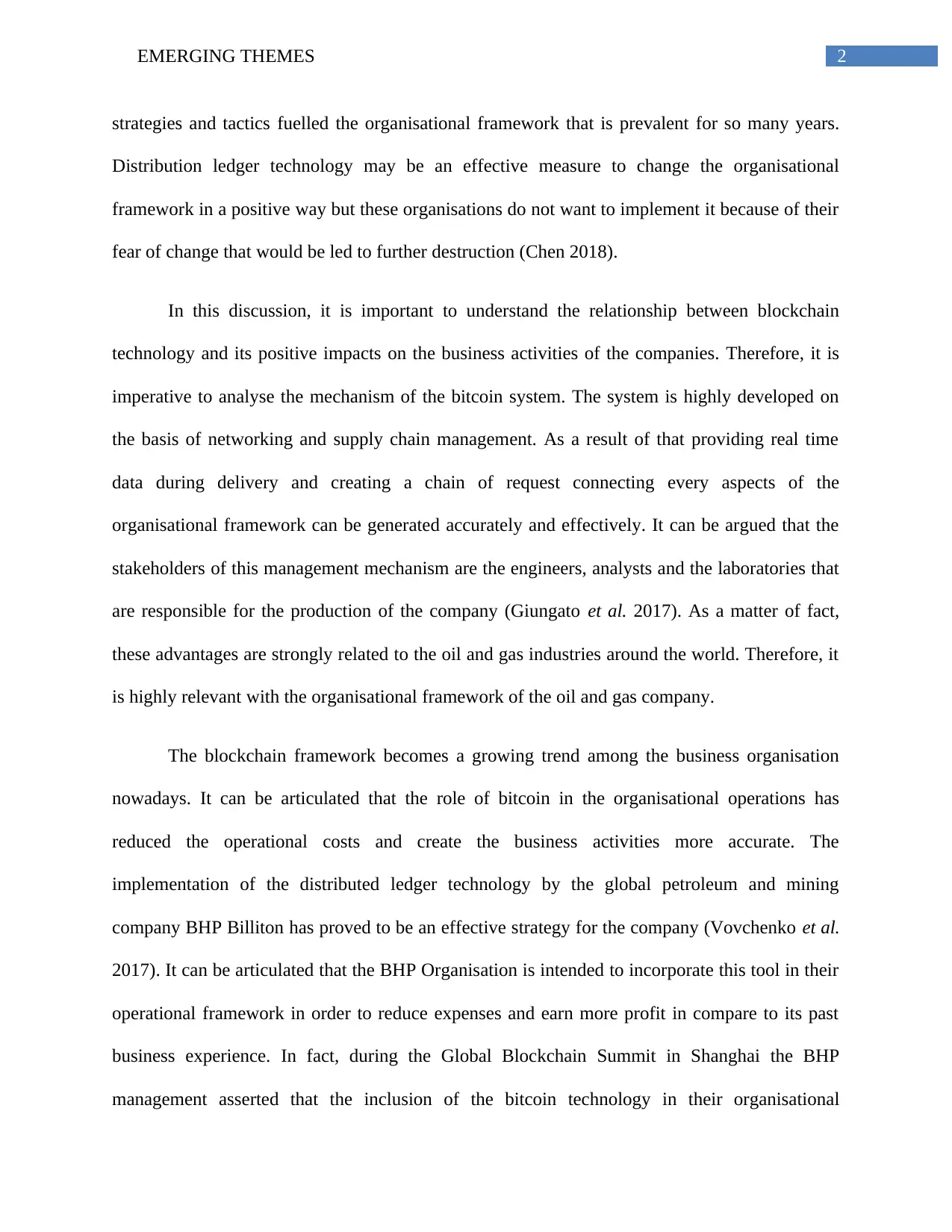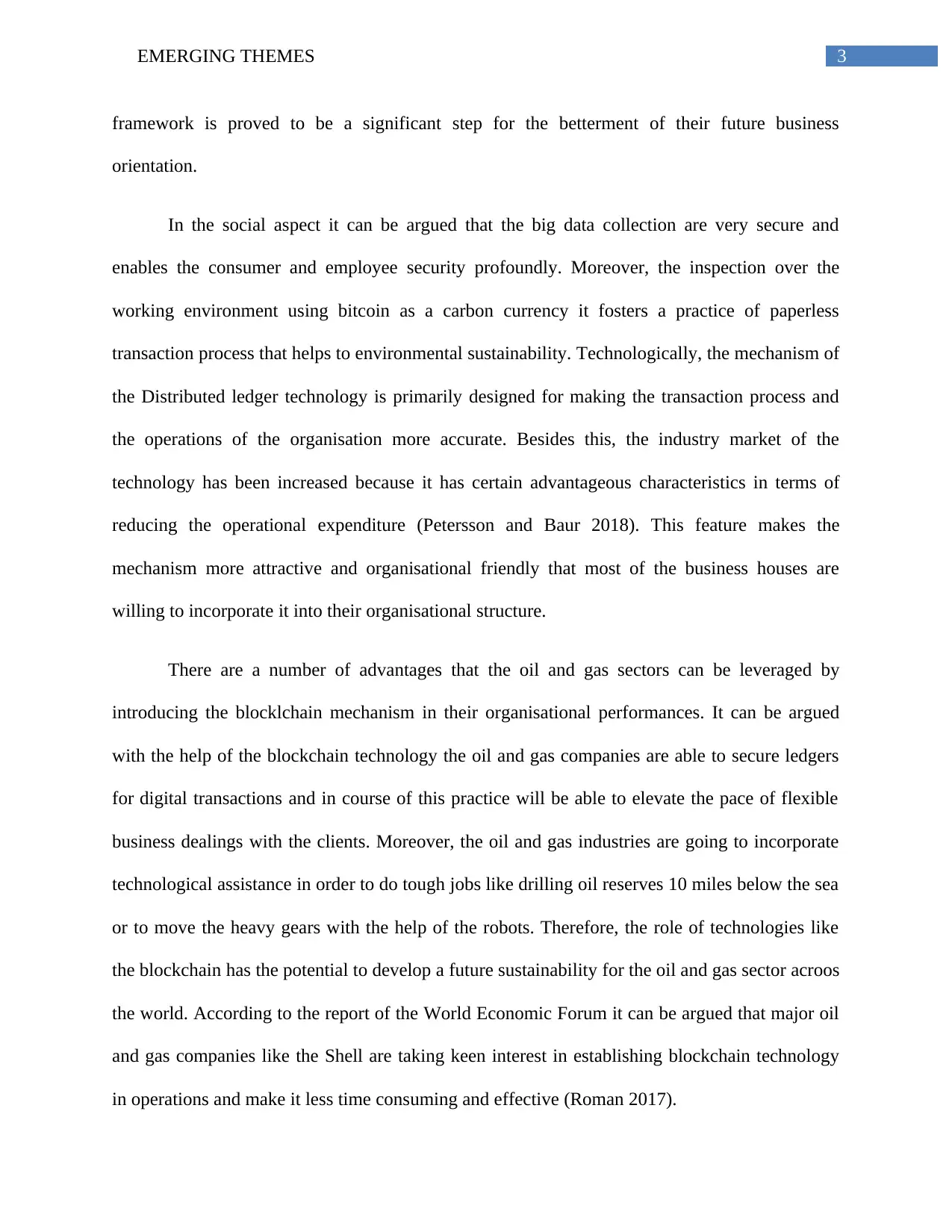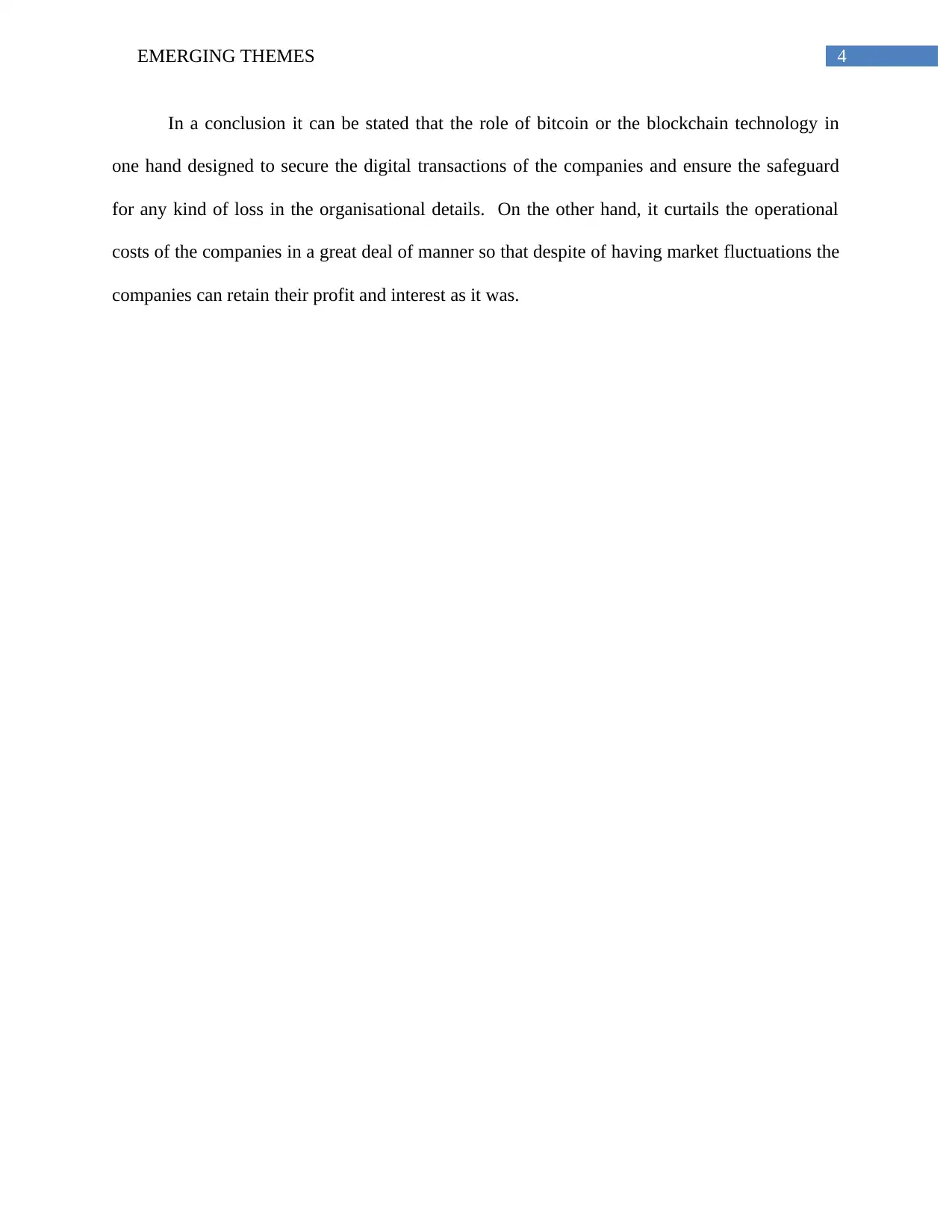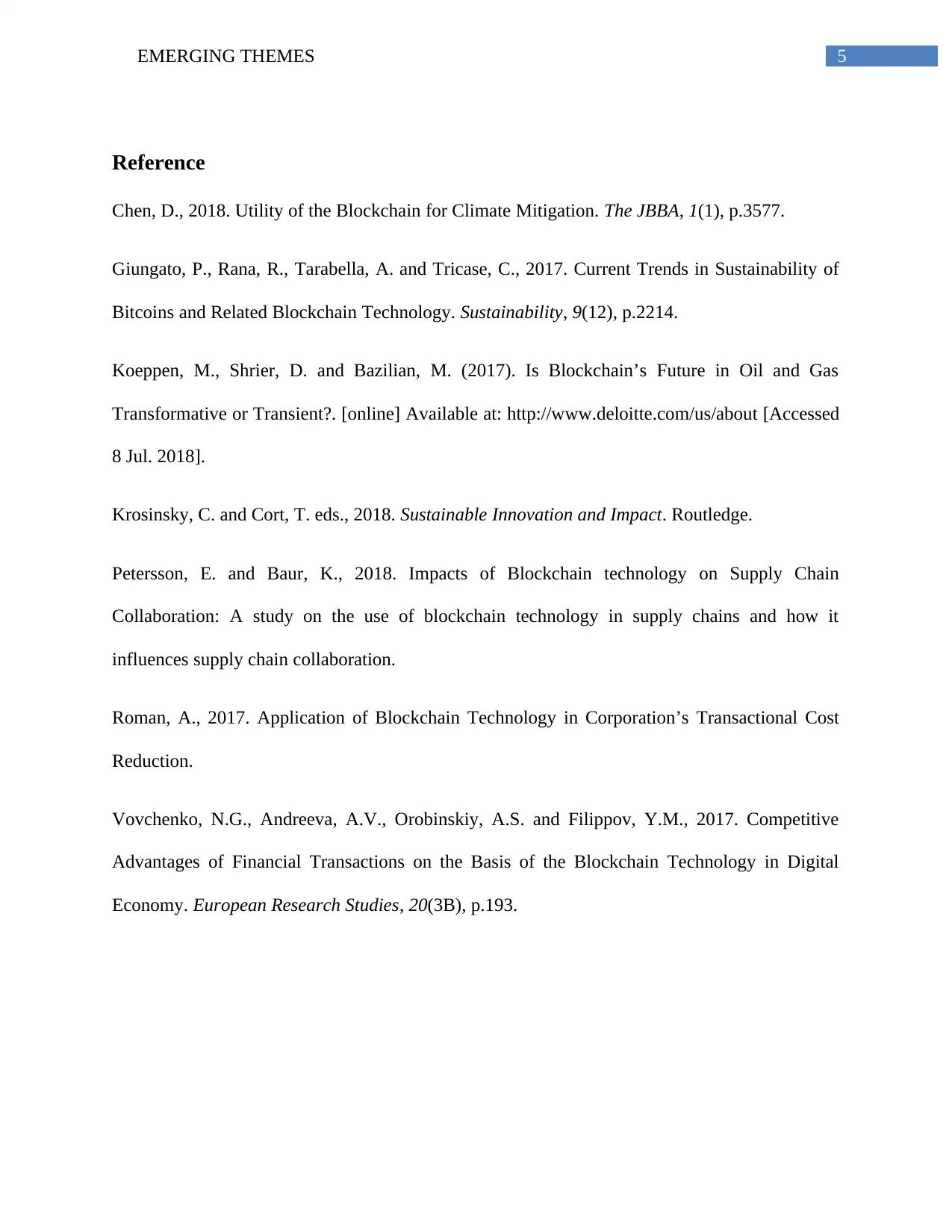Relevance and Effectiveness of Blockchain Technology in Oil and Gas Industry
VerifiedAI Summary
This report analyses the relevance and effectiveness of blockchain technology in Oil and Gas industry and illustrates the future development of the incorporation of blockchain technology in oil and gas sector. The report discusses the advantages of blockchain technology in reducing operational costs and creating a more authentic transactional framework that fosters security and reliability to the organisation as well as the clients and customers of the company. The report also highlights the reluctance of the oil and gas industry to adopt blockchain technology due to conservatism and conventional ideas. The report concludes that the role of blockchain technology has the potential to develop a future sustainability for the oil and gas sector across the world.
![[object Object]](/_next/static/media/star-bottom.7253800d.svg)
![[object Object]](/_next/static/media/star-bottom.7253800d.svg)
